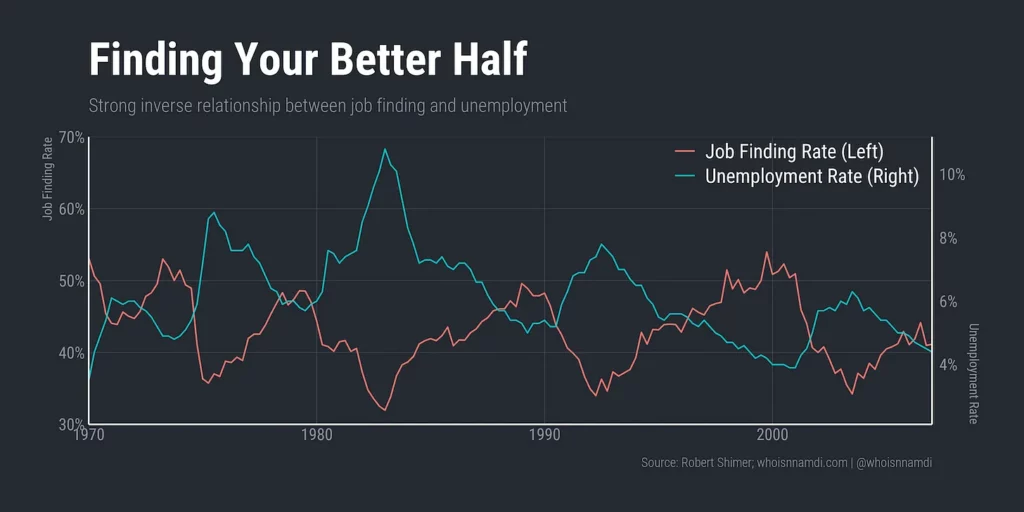It’s going to be an economic and business Career Weekly, but there are three reasons for that. The first: we know where programmers who no longer work for cryptocurrencies are going. The second: we’ve come across an interesting report in which tech leaders evaluate remote working and admit that freelancers are saving their projects. The third: we want to change your perception of the job market situation.
Programmers look for a job on Wall Street
In difficult times traditional solutions work well – gold dominates cash and cryptocurrencies are once again giving way to the good old stock market. At least, that’s according to representatives of several (not insignificant) Wall Street companies, who shared their findings with the Financial Times.
It turns out that job cuts in start-ups, big tech and cryptocurrencies have led to a big surge in job offers at “stable financial institutions”. It’s mostly about companies handling stock market investments and programmers looking at the job market more realistically than before. A cool, businesslike calculation is essential!

The Financial Times quotes executives from Citadel Securities, Intercontinental Exchange, and Nasdaq who seem to speak with one voice: the increase in candidate’s applications is up to 50%, and everyone is looking for a sense of security. There are even expressions that Wall Street companies are ‘all-weather’ organisations, and there is probably some truth in that. Many of them have weathered more than one storm, so the current downpour doesn’t scare them either.
I just wonder how many IT professionals the US financial market can actually absorb. I’m thinking here of data from Layoffs.fyi, according to which more than 75,000 people lost their jobs in the technology sector in 2022. The needs are gigantic, so whoever doesn’t get to Wall Street will have to look further….
Source:
https://www.ft.com/content/fa956177-5daa-43fd-8a64-79f5eebcc309

What management thinks about remote working (and wasn’t afraid to say it)
When the pandemic appeared on the horizon like Godzilla and made everyone hide in their home offices, the well-known world ended for many leaders…
Well, okay, I won’t exaggerate. We are well aware of how much our work has changed in recent years. The whole sphere of team management has also undergone huge changes, not to mention relationships with coworkers.
The effects of these changes have been studied by A.Team, which has just published the ‘2022 Tech Work Report’, which is based on a survey completed by 581 founders and managers of technology companies. What interesting things do we learn? First of all, that the Great Resignation has left an incredible mark on the entire sector – as many as 44% of those surveyed have lost their top specialists, who are extremely difficult to replace. Remote recruitments are dragging on for up to four months at a time and traditional processes are no longer sufficient.
Recent years have also resulted in a ‘blending’ of full-time staff with freelancers in unprecedented proportions – as many as 73% of managers hire freelance specialists. Depending on the team, they are responsible for up to half of the work carried out. Quite a lot! This has undoubtedly been influenced by the spread of remote working and the overall financial efficiency of such a strategy.

At the same time, there is a noticeable increase in efficiency after moving to a more flexible working model (62% of respondents confirm this), but there is no shortage of optimists (37% of respondents) who would like to work from the office more often with their teams in the next year. Good luck to them! 🙂
You can use the report to talk to your leader when he or she wants to introduce office Mondays, Wednesdays and Fridays. I can assure you that you will find definitely more highlights in this publication – the ones above are just a sneak peek on my part.
Source:
https://www.a.team/mission/2022-tech-work-report

Is hiring freeze more dangerous than layoffs?
The logic of the labour market can be twisted. We’ve been droning on about the themes of ‘hiring freeze’ and ‘layoffs’ in the tech industry for months now, but it’s worth looking at them from a broader perspective. As Nnamdi Iregbulem proposes in his blog.
There we find an interesting interpretation of the current situation, especially overseas. According to Iregbulem (the guy has the evidence to back this up!), redundancies are a natural part of life, which should balance with the percentage of unemployed who have happily found employment. OK, that sounds completely heartless, but economists don’t have a heart in their considerations.

When there is a disruption of these proportions and an increase in unemployment, the focus tends to be on ‘mass redundancies’ and does not go into detail. Meanwhile, the data collected by the author quoted above shows that by far the greater impact on the market is a drop in recruitment than layoffs. History confirms this.

Consequently, we should be more concerned about the lack of a better job on the horizon than about being fired from the current one. And if we’re already in the hiring process, let’s ask two key questions: whether any more hires are planned and whether the pace of hiring has slowed recently. That alone is enough to guard against mistakes and, in the process, overcome a few myths.
By the way, from an employer’s branding point of view, it is also convenient to ‘slow down hiring’ rather than ‘lay off’. Facebook, Apple and others (unfortunately) know what they are communicating.




